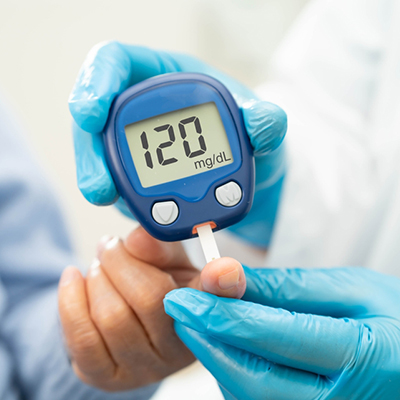Diabetic Kidney Care Treatment in Vijayawada
Diabetic kidney disease (DKD), also known as diabetic nephropathy, is a serious complication of diabetes characterized by progressive damage to the kidneys due to elevated blood sugar levels over time. It occurs in individuals with type 1 or type 2 diabetes, often developing after several years of poor glycemic control. The condition is marked by the presence of albumin in the urine and can lead to increased hypertension, kidney dysfunction, and ultimately kidney failure if left untreated. Risk factors include uncontrolled blood glucose levels, hypertension, obesity, and a family history of kidney disease. Early detection through regular monitoring of kidney function and protein levels in urine is crucial in managing DKD, along with lifestyle modifications such as diet, exercise, and dedication to control blood sugar and blood pressure.
Symptoms of Diabetes kidney disease:
Diabetic kidney disease (DKD), also known as diabetic nephropathy, occurs in individuals with diabetes and is characterized by several key symptoms. Early stages may remain asymptomatic, but as the disease progresses, individuals may experience a range of symptoms. One of the earliest signs is the presence of protein in the urine (proteinuria), which can be detected through routine tests. As kidney function declines, symptoms such as fatigue and weakness may occur due to the buildup of waste products in the bloodstream. Additional symptoms include swelling in the feet, ankles, or hands (edema) caused by fluid retention, along with changes in urination patterns, such as increased frequency or difficulty urinating. Patients may also experience high blood pressure as the kidneys struggle to maintain fluid balance. In advanced stages, associated symptoms like nausea, vomiting, loss of appetite, and unexplained weight loss can manifest as well as suggested by Best Nephrologist in Vijayawada . Anemia and bone disease may develop further complicating the clinical picture. It is essential for individuals with diabetes to monitor kidney function regularly, as early detection and management can slow the progression of DKD and minimize complications. Regular screenings for kidney health are crucial to identifying and addressing problems early on.

Will everyone with diabetes get diabetic kidney disease?
Not everyone with diabetes will develop diabetic kidney disease (DKD), but individuals with diabetes are at an increased risk. The likelihood of developing DKD depends on various factors, including the type of diabetes (Type 1 or Type 2), duration of diabetes, blood sugar control, blood pressure levels, and genetic predisposition. Good management of blood glucose by Best diabetic kidney doctor in Vijayawada and blood pressure can significantly reduce the risk of progression to DKD. Regular monitoring of kidney function is essential for early detection and intervention. Additionally, lifestyle choices such as diet, exercise, and smoking cessation can influence kidney health. While DKD is a common complication of diabetes, it is not an inevitable outcome, and proactive health management plays a key role in preventing or delaying its onset.
Diagnosis of Diabetes Kidney Disease:
Diabetic kidney disease (DKD) is diagnosed through a combination of medical history, physical examination, and laboratory tests. Initially, healthcare providers assess the patient's diabetes management and any related symptoms. Key diagnostic tests include measuring the levels of serum creatinine to estimate the glomerular filtration rate (GFR) and analyzing urine for the presence of protein, typically through a dipstick test or 24-hour urine collection to quantify proteinuria. The presence of microalbuminuria is particularly indicative of early DKD. Additional tests may include blood pressure assessment and imaging studies, such as ultrasound, to evaluate kidney structure and rule out other kidney conditions. Regular monitoring at Diabetic Kidney Care Treatment in Vijayawada is crucial, especially in patients with longstanding diabetes, as early detection can help slow disease progression through timely interventions, including glycemic control, blood pressure management, and lifestyle modifications.
Treatment and Management:
Diabetic kidney disease (DKD) is a progressive condition related to diabetes mellitus, primarily characterized by albuminuria and declining kidney function. Treatment options focus on managing diabetes and slowing disease progression. Key interventions include optimizing glycemic control with medications which help in nephroprotection. Additionally, dietary modifications as suggested by Dr. M.V. Sai Krishna, including low protein and low sodium diets, may be recommended to reduce kidney workload. While DKD is primarily considered a chronic, progressive illness, early detection at Sunrise Kidney Centre and rigorous management can potentially stabilize kidney function and, in some cases, lead to partial reversibility, especially if intervention occurs early. However, complete reversal of established DKD is rare, underlining the importance of prevention and early intervention.
Looking into few frequently asked questions on diabetic kidney disease
What is diabetic nephropathy?
Diabetic nephropathy, also known as diabetic kidney disease, is a complication of diabetes that affects the kidneys and can cause kidney damage and even kidney failure.
What are the risk factors for developing diabetic nephropathy?
The risk factors for developing diabetic nephropathy include:
- Uncontrolled high blood sugar levels
- High blood pressure
- Family history of kidney disease
- Age (older adults are more likely to develop the condition)
- Duration of diabetes (the longer you have diabetes, the higher the risk)
Can diabetic nephropathy be prevented or reversed?
While there is no cure for diabetic nephropathy, it can be prevented or delayed by controlling blood sugar and blood pressure levels, managing weight, and making healthy lifestyle choices. Early detection and treatment can also help slow or stop kidney damage.

